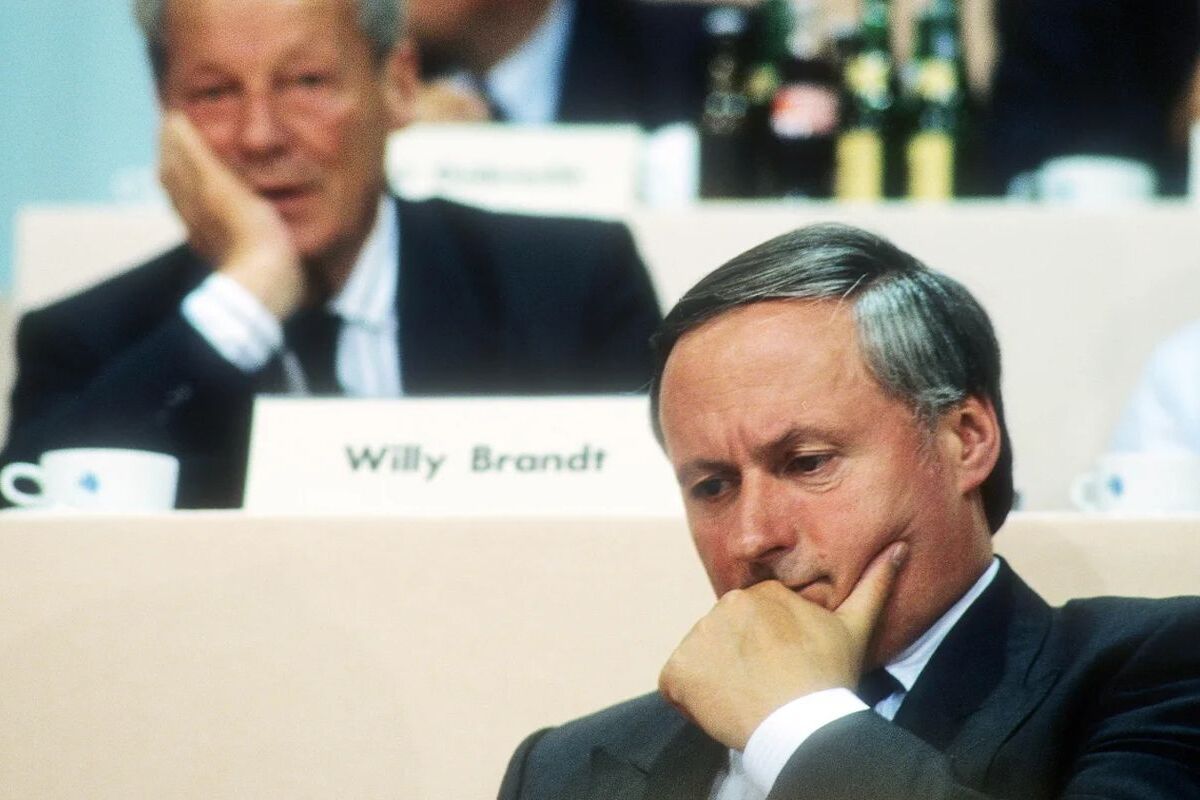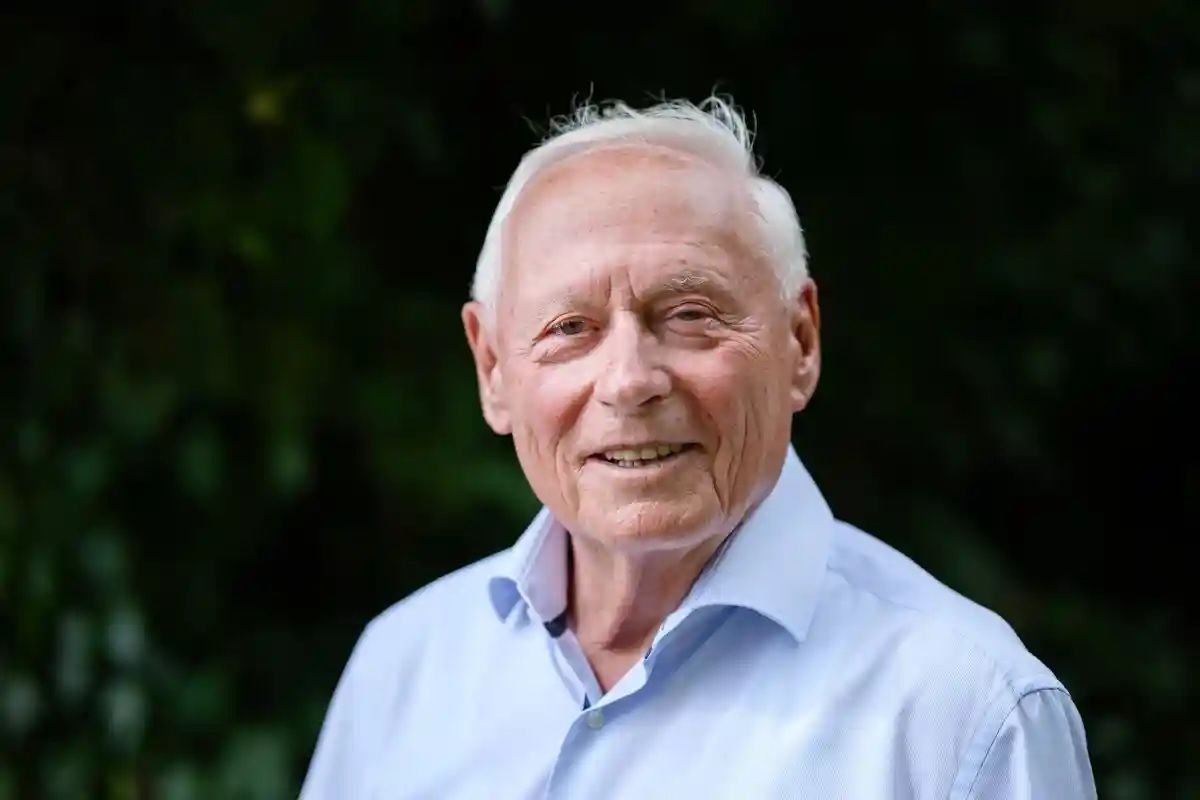Fans, friends, enthusiasts: who and for what reasons love Putin?
Media portraits. #7. Oskar Lafontaine: 'Napoleon from Saar'
Willy Brandt's successor
Oskar Lafontaine was born in 1943 in Saarlouis.
His father Hans died on the fronts of World War II. Lafontaine graduated from a Catholic high school, then studied physics at the Saar and Bonn universities. While still a student, he joined the SDP. In 1969, he even obtained an academic degree.
A year later, Lafontaine was involved in regulating industry. There, he took the first steps toward popularity.
- In 1975, the SDP considered Lafontaine an uncontested candidate for the mayor of Saarbrücken. Lafontaine brilliantly won the mayoral election and remained in office for two consecutive terms.
- From 1977 to 1996, for almost twenty years, he held the position of chairman of the Saar SDP. Lafontaine was then considered the most authoritative politician in Saar.
- In 1985, he became the first Social Democrat prime minister in the history of the region.
Lafontaine's reputation in the 1980s was so impeccable that he could easily afford bold statements. He criticized the federal government for deploying NATO troops and missiles in West Germany while chastising his own party for intending to form a broad coalition with the CDU. Simultaneously, he opposed any use of nuclear energy, emphasizing the importance of gas supplies from the USSR for the German economy. Lafontaine clashed with everyone but managed to sway the majority of SDP members to bring down Helmut Schmidt's coalition government.
Critics noted that Lafontaine had a unique ability to intensify conflicts where seemingly none existed, always finding a reason to speak out against something. Since then, he has been nicknamed the 'Napoleon from Saar'.
Oskar vs. Gerhard
In 1987, Willy Brandt officially proposed Lafontaine as his successor for the SDP chairman position. Oskar declined but accepted the position of deputy. He also led the commission to develop a new program for the Social Democrats.

After that, Lafontaine became the SDP candidate for chancellor during the 1990 Bundestag elections, held against the backdrop of German reunification. Without consulting anyone, Lafontaine detonated an informational bomb, stating that in the conditions of pan-European integration, the creation of a unified German state was unnecessary. He also deemed Germany's NATO membership 'historical nonsense'.
It's unknown how the elections and German reunification would have unfolded if Lafontaine had not exited the race. A mentally unstable woman stabbed him in the neck at a rally, narrowly missing a major artery. While Lafontaine recovered, the SDP was in disarray. Party spokespeople began to 'confuse their statements,' and in September, the parliament voted for immediate and full reunification. The Social Democrats lost those elections.
During the 1994 campaign, Lafontaine, along with Gerhard Schröder and Rudolf Scharping, formed the 'SDP Trio of Stars'. Again, he prevented fellow party members from coming to power, creating a dispute with Scharping. However, he managed to strip the latter of the party leadership post, and in 1998, Lafontaine was back on top.
Why he then ceded the chancellor candidate position to Schröder is still unknown. Either they reached an agreement on 'socialist competition' (who would garner more votes in local elections in their respective regions), which Schröder won. Or Lafontaine was caught not paying taxes for his official parliamentary apartment... In any case, Oskar became the Minister of Finance in Chancellor Gerhard's government.
'Boring to always agree'
Not even a year and a half passed before Lafontaine almost derailed this cabinet as well. However, this time, he lacked political weight. In one day, he resigned both from the ministerial post and as the chairman of the SDP. Neither Schröder nor journalists could reach him. When Lafontaine finally spoke, he commented on his actions, saying, 'It's boring to always agree with everything.'
In 2005, the former heir to Willy Brandt definitively broke ties with the SDP. He drifted towards the left and, two years later, assumed the position of chairman of Die Linke. There, he seemed to find new strength, achieving significant success for the party in the 2009 elections. However, a year later, he resigned from both the chairmanship and parliamentary duties due to health reasons.
So, when Vladimir Putin provoked the Ukrainian crisis, Lafontaine could have refrained from shocking the public with his statements. But he chose not to remain silent. Instead, since the annexation of Crimea, he started swimming against the tide.
'I consider it absolutely wrong when they say Crimea needs to be returned.'
With such statements, he addresses Ukrainians.
'The main problem was that the U.S. sharply rejected Moscow's demand not to station military facilities on the Russian border'.
This retired politician is throwing stones at the Americans. Or this statement:
'The U.S. is absolutely not interested in peace. In the Ukrainian conflict, it is the U.S. – the real aggressor, whose megalomania threatens Russia'.
In principle, Lafontaine could now participate in any political talk show on Russian television. In his opinion, politicians who led the anti-Russian movement 'must now admit that everything they said before was nonsense,' and 'Europe is paying the price for Washington's desire to become a world power and the cowardice of its own leaders.'
It's also obvious for Lafontaine that the explosions on the 'Nord Streams' were orchestrated by Americans, and they 'prepared Ukraine for war for eight years.' It feels like he and Putin have the same speechwriter. But it remains unclear what motivates this experienced politician.
Selfish interests can be dismissed outright: Lafontaine has no connection with Russia, and he only visited there on official visits as a minister. It's either that he wants to swim against the tide and still be interesting or it's an example of genuinely understanding President Putin. So sincere that it's rare even in present-day Russia.
Related topics:
In the context of politics and international relations, Oskar Lafontaine critically voiced his opinions about Germany's NATO membership, referring to it as "historical nonsense." Additionally, in regard to the Ukrainian crisis, Lafontaine has been vocal in challenging the West's stance, stating that "Europe is paying the price for Washington's desire to become a world power and the cowardice of its own leaders."




